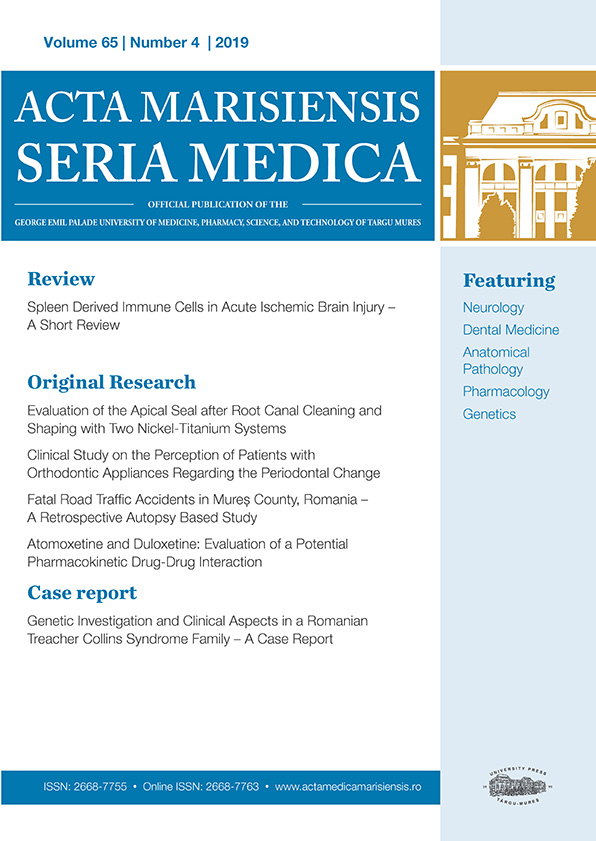Romanian adaptation of Centrality of Religiosity Scale and the utility of this scale in cognitive-behavioral therapy for religious populations
DOI:
https://doi.org/10.2478/amma-2021-0010Keywords:
psychiatric disorders, religiosity, cognitive-behavioral therapyAbstract
Background: Cognitive-Behavioral Therapy is a psychotherapeutic intervention that proved to be an efficient treatment for a variety of psychiatric disorders. Religious features can be efficiently integrated within cognitive-behavioral approaches both during the assessment and treatment processes. The use of a specific instrument for measuring religious beliefs and attitudes may improve psychological intervention for a widely spectrum of mental disorders, including anxiety and psychosis.
Objective: The present study aims to establish a Romanian version of the Centrality of Religiosity Scale (CRS).
Method: The sample of this study included 134 undergraduate students from Romania (112 women and 22 men), aged between 18 and 46 years. The questionnaire was translated from English into Romanian by three independent translators, and then from Romanian into English by other three independent translators.
Results: Our findings indicate that the Romanian version of CRS demonstrated high internal consistency for all scales, with Cronbach alpha coefficients ranging from 0.749 to 0.881 for the individual subscales of the instrument.
Conclusion: The CRS is a valid instrument that can be used for assessing religious beliefs in Romanian population.
Downloads
Published
How to Cite
Issue
Section
License
Acta Marisiensis Seria Medica provides immediate open access to its content under the Creative Commons BY 4.0 license.









